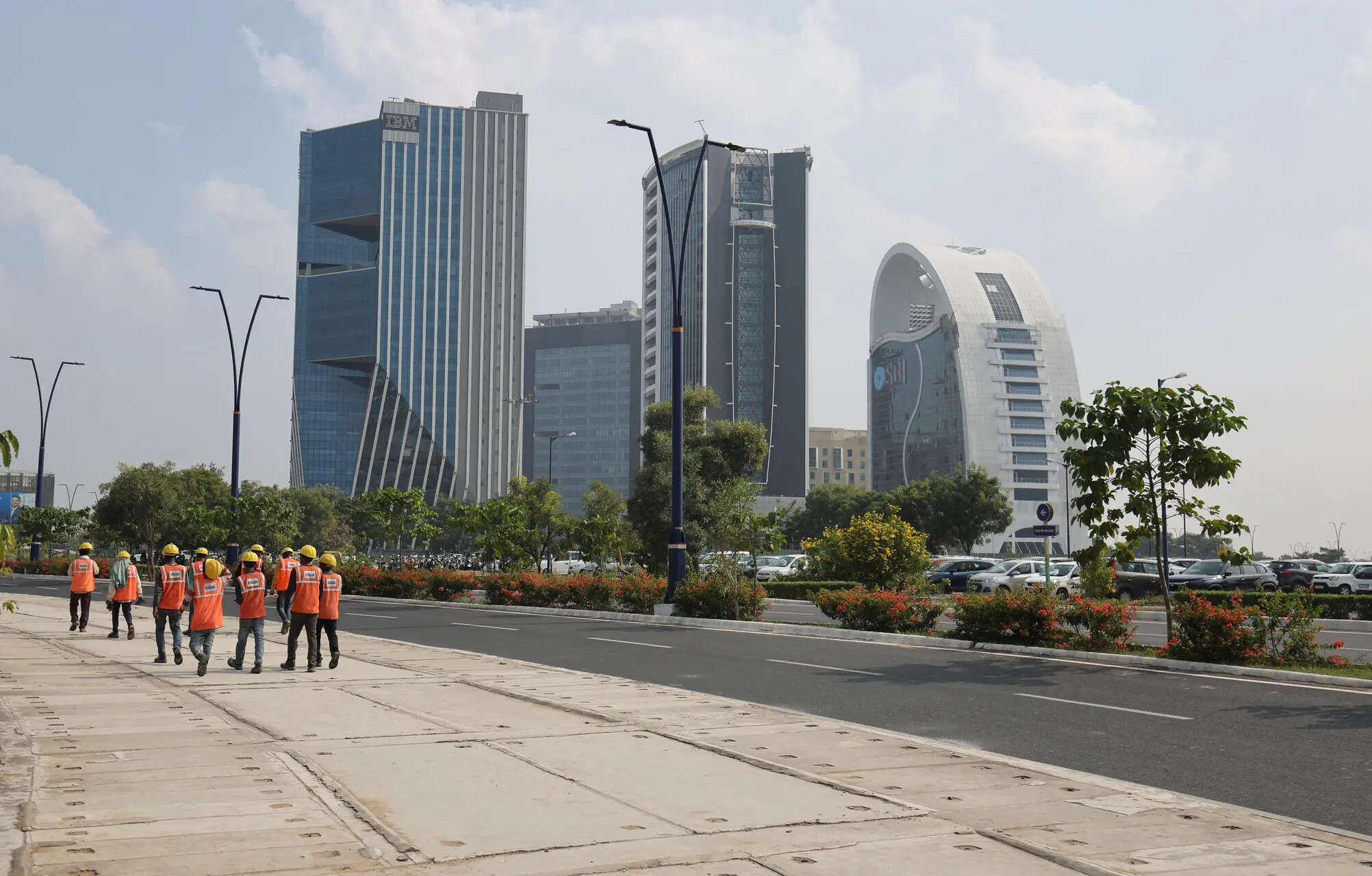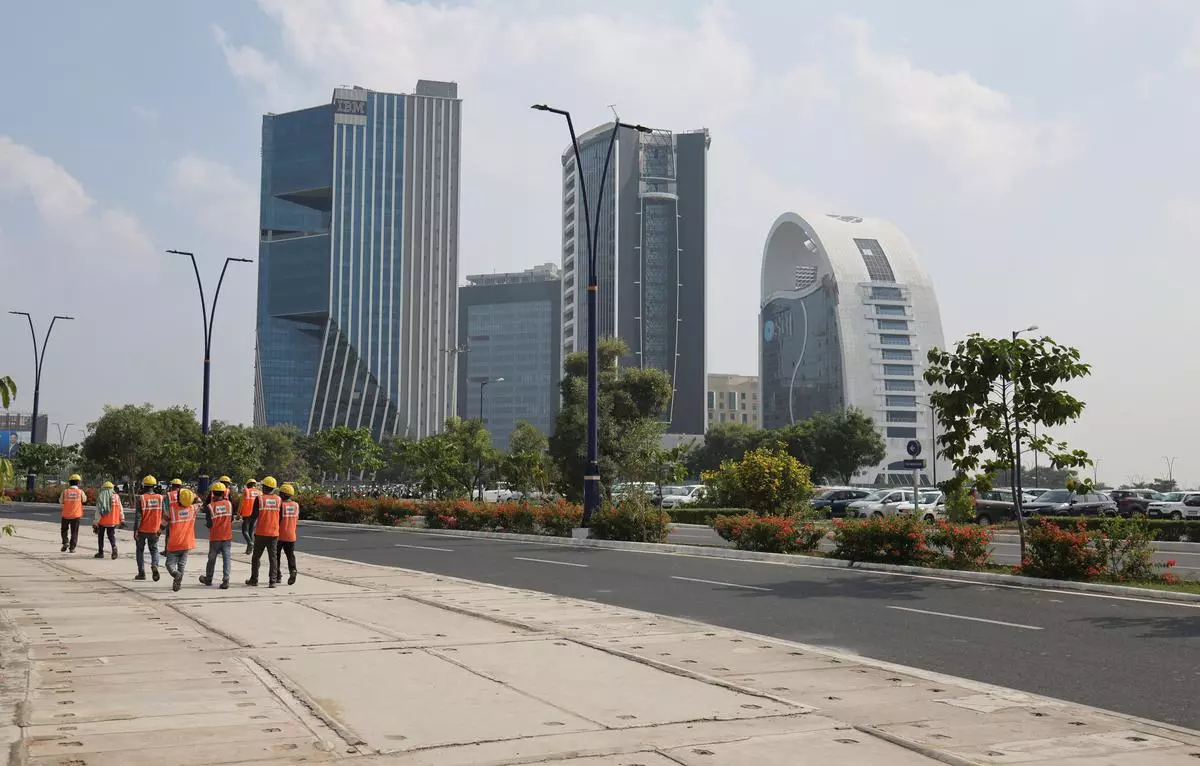Last Updated on: 22nd July 2025, 06:07 pm
Contents
- 1 What is IFSCA? (International Financial Services Centres Authority)
- 2 Why Was the IFSCA Established?
- 3 Key Functions and Powers of IFSCA
- 4 Organizational Structure of IFSCA
- 5 Where is IFSCA Located? The Role of GIFT City IFSC
- 6 IFSCA Regulations and Regulatory Framework
- 7 What Makes IFSCA Unique?
- 8 Sectors and Entities Regulated by IFSCA
- 9 How Does IFSCA Attract Global Participation?
- 10 How IFSCA Impacts India’s Global Financial Position
What is IFSCA? (International Financial Services Centres Authority)
The International Financial Services Centres Authority (IFSCA) is a unified regulatory body established by the Government of India to oversee and develop financial products, services, and institutions in India’s International Financial Services Centres (IFSCs).
IFSCA plays a central role in transforming GIFT City IFSC into a global hub for offshore and cross-border financial transactions. It brings under one roof the regulatory powers that were earlier divided among entities like the RBI, SEBI, IRDAI, and PFRDA.
Date of Establishment
IFSCA was officially established on April 27, 2020, under a special legislation to streamline the regulation of India’s IFSC ecosystem.
Statutory Basis
The authority derives its powers from the International Financial Services Centres Authority Act, 2019, passed by the Indian Parliament. This Act provides the legal framework for IFSCA to function independently and efficiently as a unified regulator.
Headquarters: GIFT City, Gujarat
IFSCA is headquartered in Gujarat International Finance Tec-City (GIFT City), located in Gandhinagar, Gujarat. GIFT City is India’s first operational IFSC and a strategic project aimed at attracting global financial players to India.
Why Was the IFSCA Established?
The International Financial Services Centres Authority (IFSCA) was created to simplify and strengthen the regulatory environment for India’s International Financial Services Centres (IFSCs), especially within GIFT City Gujarat.
Fragmented Regulatory Oversight
Before IFSCA, financial activities in IFSCs were governed by multiple domestic regulators:
- RBI – for banking operations
- SEBI – for capital markets
- IRDAI – for insurance services
- PFRDA – for pension-related products
This led to overlapping jurisdictions, compliance complexity, and regulatory delays—hindering the ease of doing business in GIFT IFSC.
Need for a Unified Regulator
To resolve these challenges, the Government of India passed the IFSCA Act, 2019, creating a single-window regulator—IFSCA. It now oversees all financial sectors in the IFSC, including:
- Banking
- Insurance
- Capital markets
- Asset management
- FinTech
This unified approach allows for faster decision-making, streamlined licensing, and integrated supervision—all under one roof.
Boosting Ease of Doing Business & Global Competitiveness
IFSCA plays a pivotal role in positioning GIFT City IFSC as a competitive alternative to other global financial hubs like Dubai, Singapore, and London. By enabling innovation, offering regulatory clarity, and reducing compliance burden, IFSCA enhances India’s global financial footprint.
Key Functions and Powers of IFSCA
The International Financial Services Centres Authority (IFSCA) serves as the single regulatory body for all financial services in India’s IFSCs, with a special focus on GIFT City IFSC, Gujarat. It not only regulates but also fosters growth, innovation, and global competitiveness in the offshore financial ecosystem.
Here’s a breakdown of IFSCA’s core functions:
| Function | Description |
| Regulatory Authority | IFSCA oversees and regulates activities across banking, insurance, securities markets, asset management, and fintech in IFSCs. |
| Development Role | Encourages innovation, supports startups, and develops the ecosystem to attract global financial institutions to GIFT City Gujarat. |
| International Collaboration | Works with foreign regulators and global institutions to align IFSC practices with international standards and best practices. |
| Dispute Resolution | Provides a dedicated mechanism to resolve financial disputes within IFSCs quickly and transparently, improving trust and ease of doing business. |
| Licensing Authority | Grants approvals and licenses to banks, insurers, asset managers, brokers, and other intermediaries operating in GIFT IFSC. |
IFSCA’s powers make it a one-stop regulatory gateway for international finance, helping position GIFT City IFSC as a leading offshore financial hub in Asia.
Organizational Structure of IFSCA
The International Financial Services Centres Authority (IFSCA) is structured to effectively oversee and develop financial services within India’s International Financial Services Centres (IFSCs), particularly at GIFT City, Gujarat.
Governance Structure
IFSCA’s governance comprises specialized departments, each focusing on distinct financial sectors:
- Department of Banking Supervision: Led by Pradeep Deo, this department manages the supervision of IFSC Banking Units (IBUs) and Finance Companies.
- Department of Capital Markets: Under the leadership of Pradeep Ramakrishnan, it oversees corporate finance, market infrastructure institutions, and investment funds.
- Department of Insurance and Pension: Headed by K. Mahipal Reddy, responsible for regulating insurance and pension services within IFSCs.
- Department of Metals and Commodities: Also led by Pradeep Ramakrishnan, focusing on market development and regulation of commodities trading.
- Department of Development: Managed by Dipesh Shah, this department promotes the development of financial markets and international affairs.
- Department of General Administration: Overseen by Praveen Trivedi, handling administration, human resources, and finance.
- Department of Technology: Led by Joseph Joshy C J, focusing on information technology and fintech initiatives.
- Department of Policy and Legal Affairs: Also under Praveen Trivedi, addressing legal policies and investor protection.
- Department of Regulatory Policy and Regulatory Affairs: Responsible for regulatory cooperation and risk-based supervision.
Each department contains divisions dedicated to specific functions, ensuring comprehensive oversight and development within their respective domains.
Chairperson and Members
The authority is led by a Chairperson appointed by the Government of India, supported by members representing various financial sectors. As of August 1, 2023, Shri K. Rajaraman has assumed the role of Chairperson. With nearly 35 years in various leadership roles within the Government of India and the Government of Tamil Nadu, his prior position was as Secretary to the Government of India in the Department of Telecommunications.
Under Shri K. Rajaraman’s leadership, IFSCA continues to enhance the regulatory framework, fostering innovation and global competitiveness within GIFT City IFSC.
Where is IFSCA Located? The Role of GIFT City IFSC
The International Financial Services Centres Authority (IFSCA) is headquartered in GIFT City, Gujarat—India’s first operational International Financial Services Centre (IFSC). Strategically developed to compete with global financial hubs, GIFT City plays a pivotal role in India’s international finance ambitions.
Overview of GIFT City Gujarat
Gujarat International Finance Tec-City (GIFT City) is a state-of-the-art financial and smart city project located between Ahmedabad and Gandhinagar. Spread over 886 acres, it integrates commercial, residential, and recreational zones with world-class urban planning.
Designed around the “walk-to-work” concept, GIFT City offers a seamless ecosystem for global financial institutions, tech companies, and professionals. It is India’s answer to international financial hubs like Dubai, Singapore, and London.
Why GIFT City Was Chosen as India’s First IFSC
India selected GIFT City to host its first International Financial Services Centre due to its strategic location, advanced infrastructure, and supportive regulatory environment.
Key Reasons:
- Proximity to major cities: Located close to both Ahmedabad (business hub) and Gandhinagar (administrative capital).
- Integrated smart city model: Combines housing, business, and lifestyle amenities in one location.
- Special Economic Zone (SEZ) benefits: Offers a globally competitive environment with relaxed regulations.
Strategic Advantages of GIFT City IFSC
Setting up within GIFT City IFSC comes with multiple benefits for global businesses, investors, and fintech innovators:
1. Attractive Tax Incentives
- 100% income tax exemption for any 10 out of 15 years
- No GST on specific financial services
- Exemptions from securities transaction tax and commodity transaction tax
2. World-Class Infrastructure
- 24×7 power supply and advanced utilities
- High-speed connectivity and smart building systems
- Environmentally sustainable urban design
3. Regulatory Ease and Unified Compliance
- Single-window regulatory approval by IFSCA
- Simplified licensing for banks, insurers, capital market intermediaries, fintech, startups, etc.
- Faster operational setup and lower compliance burden
By establishing its headquarters in GIFT City Gujarat, IFSCA is positioned at the heart of India’s growing international finance ecosystem—empowering GIFT City IFSC to become a globally recognized destination for cross-border finance and innovation.
IFSCA Regulations and Regulatory Framework
The International Financial Services Centres Authority (IFSCA) plays a pivotal role in building a transparent, innovation-driven, and globally competitive regulatory environment within GIFT City IFSC, Gujarat. Since its establishment, IFSCA has issued several sector-specific regulations to promote seamless cross-border finance and attract global institutions.
Sectors Eligible to Operate in GIFT IFSC
GIFT City’s IFSC is India’s gateway for global financial services, enabling a host of entities to operate with regulatory ease and global competitiveness. Below are the core sectors permitted to set up within the IFSC:
1. Banking Institutions
Indian and international banks can establish offshore units to provide a wide range of foreign currency banking services.
2. Insurance Players
Life and general insurers, reinsurers, and licensed intermediaries—both domestic and foreign—can offer insurance solutions for international clients from GIFT IFSC.
3. Investment & Fund Management
Fund managers, AIFs, wealth managers, pension funds, custodians, and trustees can register and manage global capital from the IFSC.
4. Securities & Capital Market Infrastructure
Entities like stock exchanges, brokers, depositories, clearing corporations, and bullion market members can establish operations under the IFSC regulatory regime.
5. Digital & Cross-Border Payment Services
Authorized players can offer e-money issuance, escrow services, merchant acquiring, and cross-border remittance solutions with regulatory clarity and global reach.
6. Enabling & Ancillary Services
The IFSC also welcomes global in-house centers, aircraft and ship leasing companies, fintech labs, law and consultancy firms, auditors, academic institutions, and R&D setups.
Major Reforms Under IFSCA
IFSCA Banking Regulation, 2020
This was one of the first comprehensive regulations rolled out by the Authority. It provides a legal framework for:
- Setting up and operating IFSC Banking Units (IBUs)
- Foreign currency lending and deposits
- Cross-border trade finance
- Client confidentiality and risk management
These regulations position GIFT IFSC as a preferred offshore banking destination for global banks and corporate treasury operations.
IFSCA (Issuance and Listing of Securities) Regulation, 2021
The IFSCA (Issuance and Listing of Securities) Regulations, 2021 streamline and unify the framework for issuing and listing securities on IFSC-based exchanges such as India INX and NSE IFSC.
Key Features:
- Direct Listing of Indian and Foreign Companies: Indian public companies, REITs, and InvITs can now directly list their securities on IFSC exchanges without the need for overseas listing vehicles.
- Framework for Debt and Depository Instruments: Enables listing of bonds, non-convertible debentures, and depositary receipts in a simplified manner.
- Foreign Issuer Access: Regulatory clarity has been extended to foreign companies and institutional investors, improving access to Indian capital markets via the IFSC route.
Why It Matters:
This regulatory update has unlocked new capital-raising opportunities for both Indian and global players while strengthening GIFT IFSC’s role as an international listing hub—bringing it closer to becoming a regional rival to established financial centers like Singapore and Dubai.
What Makes IFSCA Unique?
The International Financial Services Centres Authority (IFSCA) is unlike any other regulator in India’s financial ecosystem. Designed to support GIFT City IFSC, it brings together diverse regulatory functions under a single authority—something never done before in the country.
India’s First Unified Financial Regulator
IFSCA marks the first time India has created a single regulator to oversee multiple sectors—banking, insurance, capital markets, asset management, and fintech—exclusively within International Financial Services Centres.
Previously, institutions in IFSCs had to interact with multiple regulators like RBI, SEBI, IRDAI, and PFRDA. IFSCA eliminates this fragmentation, offering a one-stop regulatory framework that enhances ease of doing business in GIFT City Gujarat.
A Catalyst for FinTech Innovation
One of IFSCA’s standout features is its Regulatory Sandbox, which enables startups and financial innovators to test new technologies and business models in a live environment with controlled risks.
This sandbox approach promotes the development of:
- Blockchain-based solutions
- Cross-border payment systems
- Digital wealth platforms
- Tokenized assets and digital lending models
With a focus on emerging tech, IFSCA is helping GIFT City IFSC evolve into a global FinTech hub.
Enabling Global Capital Raising in India
IFSCA has created a favorable ecosystem for foreign and domestic entities to raise capital from international investors via the IFSC stock exchanges—namely India INX and NSE IFSC.
With its progressive regulations, IFSCA allows:
- Direct listing of Indian and foreign companies
- Issuance of foreign currency bonds, REITs, and depository receipts
- Participation by Qualified Foreign Investors (QFIs) and institutional players
This is a game-changer for India’s capital markets and positions GIFT City IFSC as a competitive platform for global fundraising.
Sectors and Entities Regulated by IFSCA
The International Financial Services Centres Authority (IFSCA) serves as the single-point regulator for a wide range of financial services within GIFT City IFSC, Gujarat. Its mandate spans across multiple verticals, ensuring a well-regulated, globally aligned, and innovation-friendly ecosystem for international finance.
Sectors and Entities Regulated by IFSCA
The IFSCA acts as the unified regulator for financial activities within GIFT City IFSC, Gujarat. With its progressive and globally benchmarked framework, IFSCA oversees a broad range of financial and allied services aimed at creating a vibrant international financial ecosystem.
Financial Sectors Under IFSCA’s Regulatory Scope
1. Banking Units
- Regulates IFSC Banking Units (IBUs) offering offshore banking in foreign currency
- Enables services like cross-border lending, trade finance, and treasury operations
- Permits opening of Foreign Currency Accounts under LRS
2. Insurance and Reinsurance
- Licenses direct insurers, reinsurers, and intermediaries
- Enables retail offerings including health, life, education, and travel insurance for NRIs
- Supports global risk capacity and insurance innovation
3. Capital Market Intermediaries
- Supervises brokers, exchanges, clearing corporations, and depositories
- Enables trading in debt, equity, ETFs, ESG instruments, and derivatives
- Permits listing of Commercial Paper and Certificates of Deposit
4. Asset Management and Fund Entities
- Regulates AIFs, mutual funds, VC & angel schemes, and FMEs
- Recent update: 198 registered fund schemes, including Category I, II, III AIFs
- Allows relocation of offshore schemes to GIFT IFSC
- Retail mutual funds, ETFs, and ESG funds also now included
5. Aircraft & Ship Leasing
- Facilitates global aircraft leasing including sale and leaseback models
- As of Dec 2024: 196 aviation assets leased; ship leasing units also operational
- Guidelines issued for sharing manpower and infrastructure among leasing entities
6. Payment & Settlement Services
- Allows cross-border digital payments, e-money issuance, escrow services
- Regulates PSPs under IFSCA (Payment and Settlement Systems) Regulations, 2024
7. Bullion Exchange (IIBX)
- Enables spot trading of gold and silver through India International Bullion Exchange
- 33 qualified suppliers and 153 jewellers onboarded as of Dec 2024
8. FinTech and Digital Platforms
- Regulatory sandbox for startups
- FinTech entities offering robo-advisory, AI-based trading, blockchain solutions, etc.
9. Trade Finance Platforms (ITFS)
- IBUs and NBFCs can engage in factoring, forfaiting, bill discounting, and supply chain finance
- Expanded to include secondary market transactions
10. Education & Research Institutions
- IFSCA now permits foreign universities and training institutes to set up within IFSC to support financial education, research, and certification
11. Ancillary & Professional Services
- Includes law firms, accounting firms, rating agencies, compliance advisory, and ESG certifiers
- ESG data product providers and credit rating agencies governed under specific frameworks
How Does IFSCA Attract Global Participation?
The International Financial Services Centres Authority (IFSCA) has created a globally competitive environment at GIFT City IFSC, Gujarat, to attract foreign investors, multinational financial institutions, fintech innovators, and global banks. Through a combination of regulatory clarity, tax benefits, and investor-friendly policies, IFSCA is helping position India as a preferred destination for international finance.
1. Tax Neutrality and Business Incentives
One of the biggest draws for global entities is the favorable tax regime offered under the IFSCA framework:
- 100% income tax exemption for any 10 consecutive years out of a 15-year block for IFSC units
- GST exemptions on services rendered within IFSC and to overseas clients
These incentives make GIFT City IFSC a tax-efficient base for global operations.
2. Ease of Capital Movement and Repatriation
IFSCA regulations allow for free movement of capital, making it easy for foreign investors to bring in and take out funds without typical regulatory bottlenecks:
- No restrictions on foreign currency remittances
- Simple procedures for profit repatriation, dividend distribution, and capital exit
This ease of movement enhances the confidence of institutional investors and multinational firms.
3. No Currency Risk Due to USD Transactions
Entities operating in GIFT City IFSC conduct transactions primarily in freely convertible foreign currencies, including USD, EUR, and GBP:
- Eliminates currency conversion risks common in domestic transactions
- Enables hedging, forex trading, and offshore financing in globally accepted currencies
- Ideal for multinational businesses, treasury operations, and NRI investment platforms
This foreign currency flexibility significantly boosts the IFSC’s appeal for cross-border financial activity.
4. Cross-Border Dispute Resolution Mechanisms
IFSCA has built-in mechanisms for efficient dispute resolution in line with global best practices:
- Access to International Arbitration Centres
- Fast-track settlement processes for cross-border disputes
- Regulatory clarity that reduces legal friction and investor uncertainty
This ensures a transparent, trustworthy, and predictable business environment—key for global players evaluating India as a long-term financial hub.
How IFSCA Impacts India’s Global Financial Position
The International Financial Services Centres Authority (IFSCA) is playing a transformative role in elevating India’s global financial position by developing GIFT City IFSC into a world-class international finance hub. With unified regulation, global investor-friendly policies, and seamless cross-border access, IFSCA positions India alongside major financial centers like Singapore, Dubai, and London. Its focus on capital market development, fintech innovation, and international collaborations is not only attracting global institutions but also enabling India to emerge as a competitive player in offshore finance, trade, and investment flows—firmly placing GIFT City Gujarat on the map of leading financial ecosystems worldwide.
FAQs on International Financial Services Centres Authority (IFSCA)
-
What is IFSCA and its role in GIFT City?
The International Financial Services Centres Authority (IFSCA) is India’s unified regulatory body established to oversee and develop financial services within International Financial Services Centres (IFSCs), such as GIFT City in Gujarat. IFSCA’s role includes regulating banking, insurance, capital markets, and fintech activities, aiming to position GIFT City as a global financial hub.
-
What are the tax benefits for entities operating in GIFT City IFSC?
Entities operating in GIFT City IFSC enjoy several tax incentives, including:
- 100% income tax exemption for 10 consecutive years out of 15 years.
- No Securities Transaction Tax (STT).
- No Commodity Transaction Tax (CTT).
These benefits make GIFT City an attractive destination for financial services.
- 100% income tax exemption for 10 consecutive years out of 15 years.
-
Can foreign investors participate in GIFT City IFSC?
Yes, foreign investors can fully participate in GIFT City IFSC. The regulatory framework allows for 100% foreign ownership in various financial sectors, including banking, insurance, and capital markets, facilitating global investment and operations.
-
How does IFSCA promote fintech innovation?
IFSCA fosters fintech innovation through initiatives like the Regulatory Sandbox, which allows fintech firms to test new products and services in a controlled environment. This approach encourages the development of cutting-edge financial technologies within GIFT City IFSC.
-
What financial activities are permitted in GIFT City IFSC?
GIFT City IFSC permits a wide range of financial activities, including:
- Banking Services: Offshore banking units offering foreign currency transactions.
- Insurance and Reinsurance: International insurance services and cross-border reinsurance.
- Capital Markets: Trading in equities, commodities, and derivatives through exchanges like India INX and NSE IFSC.
- Asset Management: Fund management services, including mutual funds and alternative investment funds.
These activities are regulated by IFSCA to ensure compliance and promote growth.
- Banking Services: Offshore banking units offering foreign currency transactions.
-
How does GIFT City compare to other global financial centers?
GIFT City is designed to compete with global financial centers like Singapore, Dubai, and London by offering a business-friendly regulatory environment, tax incentives, and state-of-the-art infrastructure. Its strategic location and unified regulatory framework under IFSCA position it as a compelling destination for international financial services.
We Are Problem Solvers. And Take Accountability.
Related Posts


AIF in GIFT City IFSC- Structures, Regulations, Benefits
AI Summary The growth of Alternative Investment Funds (AIFs) in…
Learn More





GIFT City Business Opportunities – A Deep Exploration
AI Summary GIFT City (Gujarat International Finance Tec-City) is India’s…
Learn More





GIFT City Ecosystem for Startups – A Complete Guide in 2026
AI Summary GIFT City, India's first International Financial Services Centre…
Learn More















